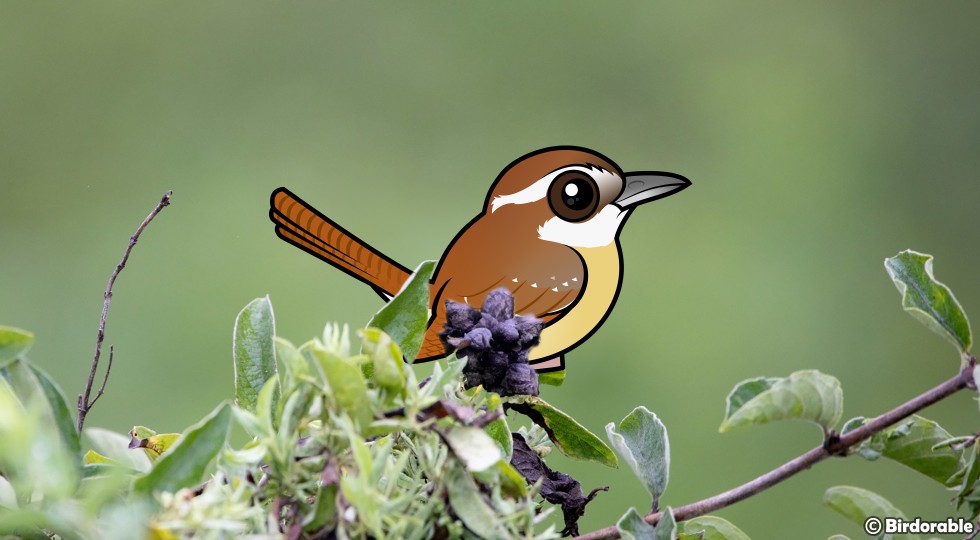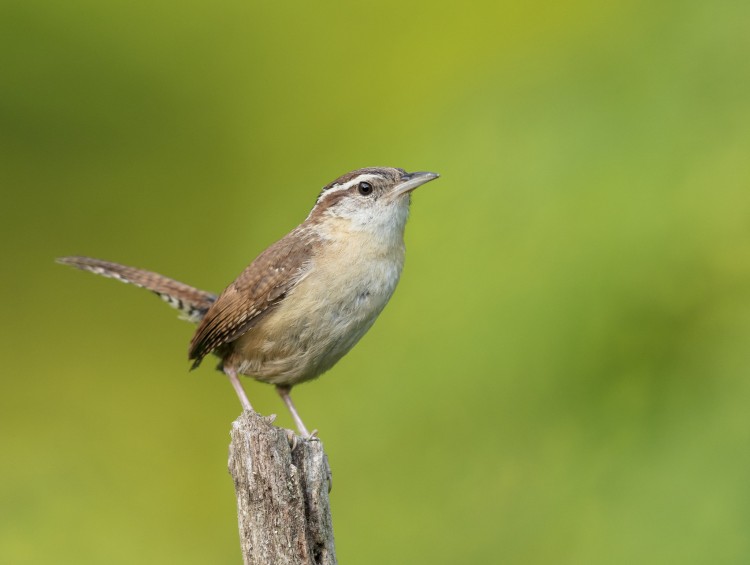Of Carolina Wrens and Tea Kettles

This week we welcome the Carolina Wren to Birdorable! The beloved bird is found across the eastern United States and known for its distinctive and loud song. This small bird, which is the state bird of South Carolina, is a common sight in backyards and gardens. The male Carolina Wren's song, famously rendered as "tea-kettle, tea-kettle, tea-kettle," varies regionally. Birds in northern areas tend to sing slower than their southern counterparts.
Carolina Wrens are easily recognized by their rich, reddish-brown plumage and distinctive white eye stripe. They are active and curious birds, often seen flitting around underbrush and dense vegetation. These wrens are also known for their nesting habits, often building nests in a variety of locations, from tree cavities to human-made structures like flower pots and mailboxes.
Their diet primarily consists of insects and spiders, but they will also eat seeds and fruit, making them frequent visitors to bird feeders, especially during winter when food is scarce. Carolina Wrens are non-migratory birds, staying in their territories year-round, which makes them familiar faces for many bird enthusiasts.

Carolina Wren by Shenandoah National Park (public domain)
Our Birdorable version of the Carolina Wren captures the adorable essence of this charming bird, with its vibrant plumage and curious nature. Whether you're an experienced birdwatcher or new to the hobby, spotting a Carolina Wren is always a delightful experience.













Comments
Leave a comment
Thank you!